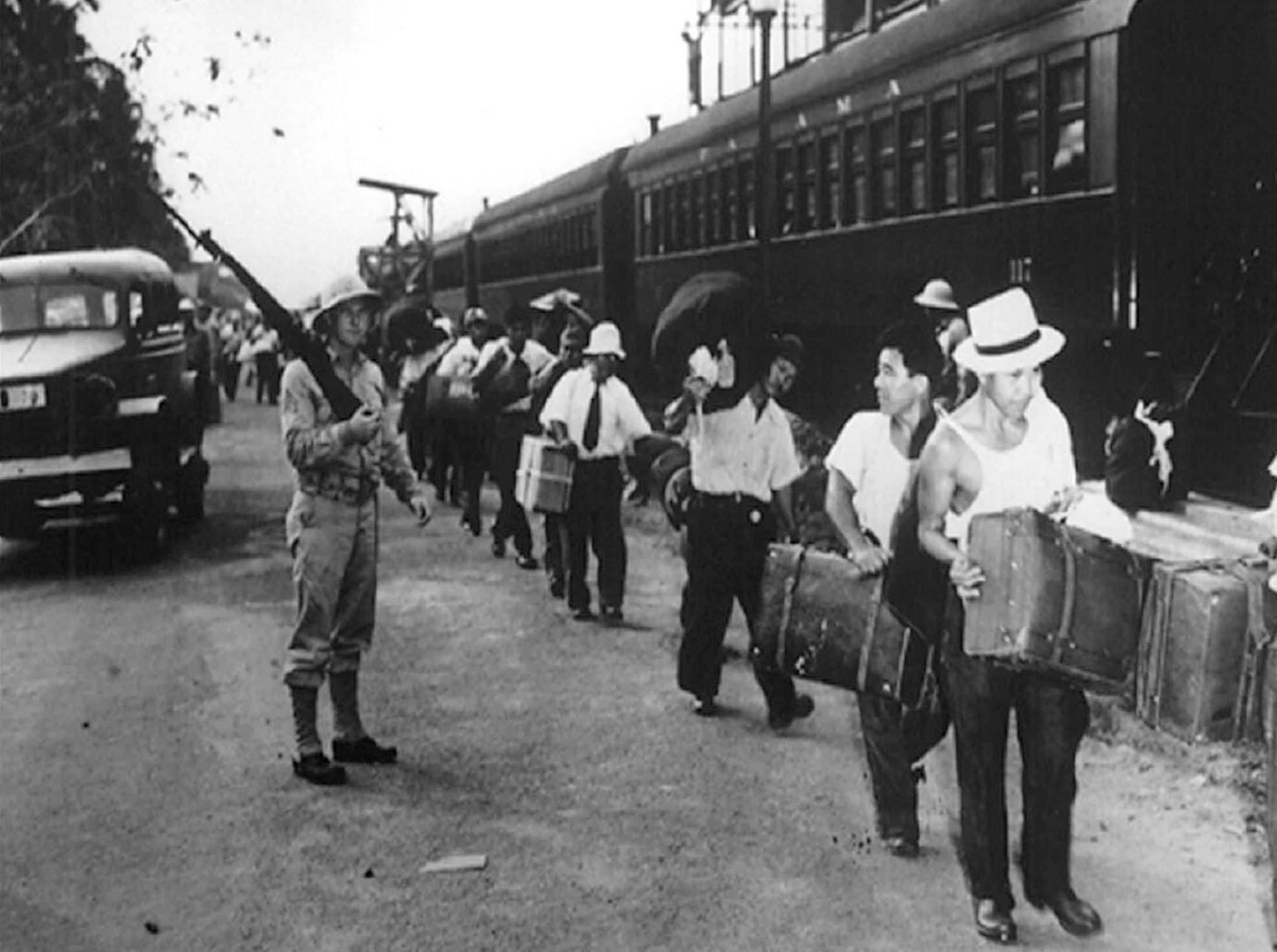This is no place for a living creature. We drink impure water and then get sick and the children’s [sic] get skin disease even the grownups are sick from cold. We ate from the mess house and it is near the toilet only a few yards away. We eat the filth that is flying around. We got no place to take a bath and no place to wash our clothes or dry them when it rains.
On Oct. 10, 1942 a petition was written by Aleut women in the Pribilof Islands Program citing their living conditions at the Funter Bay Evacuation Camp (a cannery) in southeastern Alaska during World War II.
Residents of many Alaskan islands had been relocated during early Japanese advances in the Pacific. The title of an article by Shoshi Parks sums up what happened, To protect Indigenous Alaskans from Japanese bombs, the U.S. gave them. . . internment and death: The internment of WWII-era Aleuts decimated 10 percent of the population.
In The U.S. Forcibly Detained Native Alaskans During World War II (Smithsonian.com, February 22, 2017), Erin Blakemore writes,
As John Smelcer explains for NPR’s Code Switch, in 1942, Japanese troops began to bomb the Aleutian Islands, a long chain of islands that stretch between Alaska and Japan in the Pacific Ocean. They seized and occupied parts of the islands — the first time since the War of 1812 that American territory had been occupied. The islands were of strategic value to the United States and Japan. Following Japan’s aggression, the U.S. military decided to forcibly evacuate Indigenous people from their homes to get them to safer locations, then destroy their villages with a scorched-earth policy to prevent invading Japanese troops from using their housing.
All in all, 881 Aleuts were forcibly relocated and interned, transported to unsanitary camps in southeast Alaska, and held there throughout the war. They were not consulted and, as Christopher Cueva writes for the Alaska Humanities Forum, the evacuation itself was hasty and traumatic. As one Fish & Wildlife Service member recalled, nobody was allowed to bring more than one suitcase of possessions. Troops then set fire to the villages that had been inhabited just days before rather than leave them to the Japanese invaders. Aleuts were shoved onto crowded boats with no idea where they were headed, Smelcer reports. [Continue reading.]
Read more in Oppressed Women Ask the Government to “Make Amends” (National Archives) and Aleut Epitaph at Funter Bay: Human Rights and Constitutional Rights Violations at U.S. Internment Camps.









Twitter
Google plus
LinkedIn